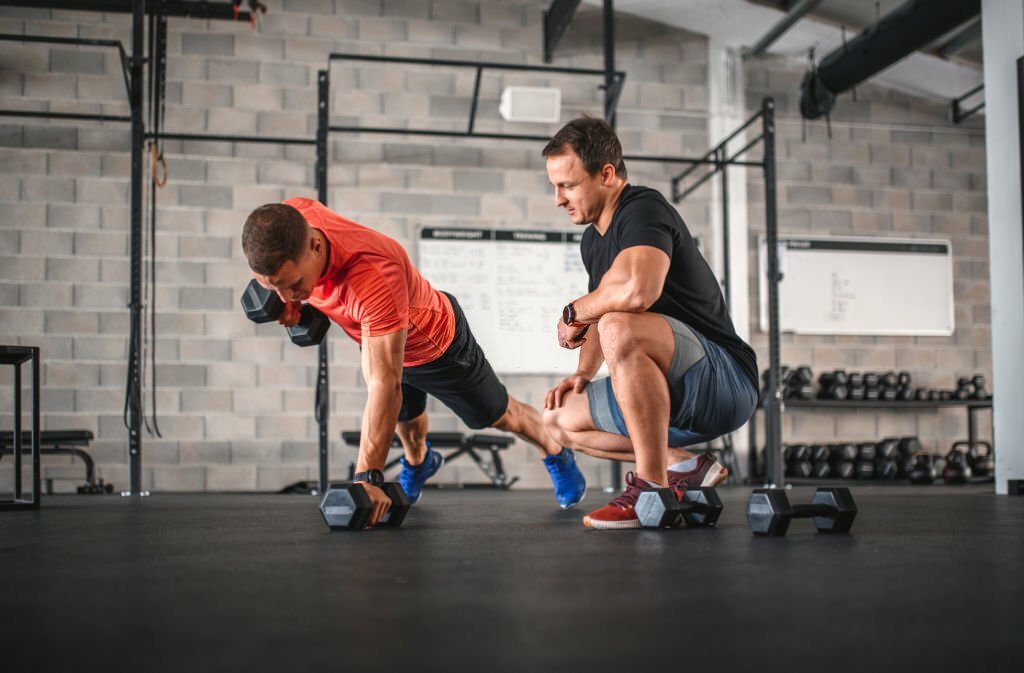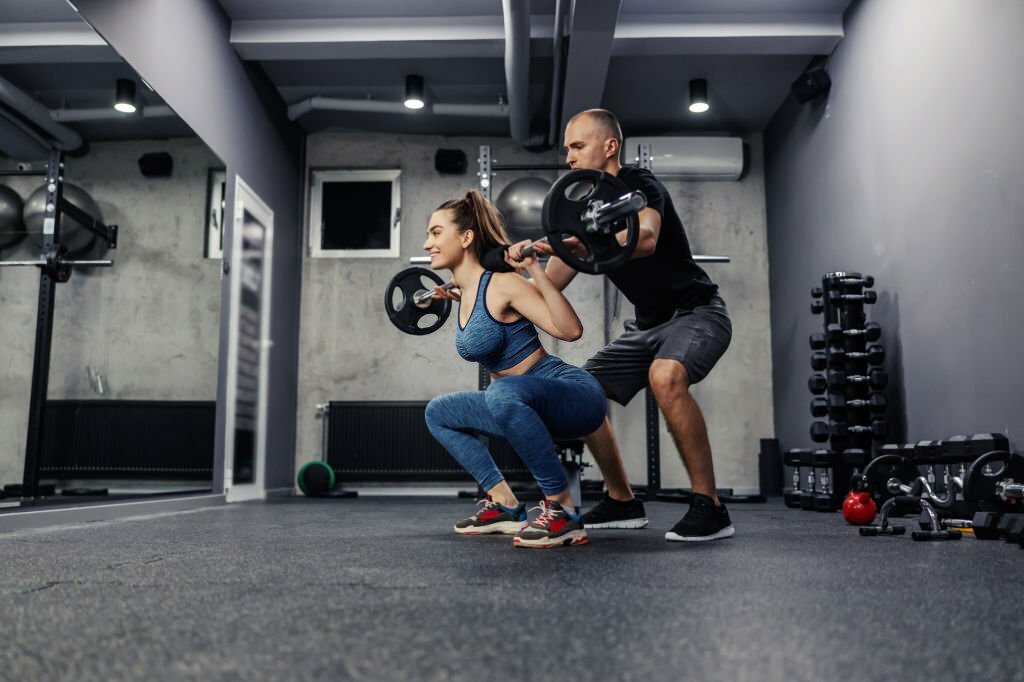In the world of professional sports, athletes strive not only for triumph but also to unlock their full physical potential. Working behind the scenes, a vital figure takes the stage in shaping and refining these athletes into performers—the personal fitness trainer.
In this article, we explore the significance of fitness trainers in sports, delving into how they tailor workout routines to address specific athletic requirements and contribute to the overall well-being and performance of athletes.
Understanding the Impact of Personal Fitness Trainers
Personal fitness trainers play a pivotal role in transforming fitness journeys by providing tailored guidance and expertise. Their impact extends beyond physical exercise, influencing clients’ overall well-being through motivation, education, and the establishment of sustainable lifestyle habits.
1. Customizing Workouts for Individual Athletes
Personal fitness trainers in sports can be compared to conductors crafting a symphony; they recognize that each athlete is a unique instrument with distinct needs and capabilities.
These trainers create personalized workout routines that cater to an athlete’s strengths, weaknesses, and positional demands. By tailoring exercises to athletes, trainers ensure that every movement contributes to skill development and injury prevention.
Visit Fearlesstrainingunited.com to hire the top professional trainers as they bring expertise, tailoring workouts to your unique goals, body type, and fitness level. Their guidance ensures proper form, reducing the risk of injury and maximizing results.
2. Addressing sport-specific challenges
The realm of sports encompasses diverse disciplines, each with unique demands. A personal trainer who specializes in fitness is knowledgeable about the requirements of sports.
They create customized workout routines that cater to the needs of athletes in positions. For example, they focus on developing speed for sprinters, endurance for cyclists, and agility for soccer players.
Holistic Well-Being and Performance
Holistic well-being and performance are interconnected aspects of a person’s life, emphasizing the integration of physical, mental, and emotional health to optimize overall functioning.
When individuals prioritize a balanced approach that nurtures their mind, body, and spirit, they often experience enhanced performance, resilience, and a greater sense of fulfillment in various aspects of their personal and professional lives.
1. Injury Prevention and Rehabilitation
In addition to focusing on strength and conditioning, personal fitness trainers also prioritize preventing injuries and aiding in rehabilitation. They design programs that strengthen areas, increase flexibility, and address any existing injuries.
By incorporating exercises and rehabilitation techniques, trainers contribute to an athlete’s long-term performance at a certain level.
2. Mental and Emotional Support
Furthermore, personal fitness trainers provide emotional support as part of their role in helping athletes achieve peak performance.
They serve as mentors who offer guidance, motivation, and a structured environment to help athletes navigate the challenges associated with competition. By fostering a mindset, trainers contribute to an athlete’s resilience and overall well-being.

Adaptability and Periodization
Adaptability is a key component of successful periodization, allowing individuals to tailor their training regimens based on changing circumstances and evolving fitness goals.
By incorporating adaptability into periodization models, individuals can optimize their workout routines, ensuring they remain effective and aligned with their ever-changing needs and aspirations.
1. Seasonal and Career Periodization
Personal fitness trainers are professionals who understand the nature of sports. They utilize periodization strategies by adjusting training programs based on an athlete’s competition schedule. This ensures performance during events, throughout the season, or career progression.
Moreover, trainers take into account the athlete’s career progression. Adapt the intensity and focus of workouts to suit each stage of their journey.
2. Incorporating Technological Advancements
The field of sports science is constantly changing. Personal fitness trainers keep up with technological advancements. They integrate state-of-the-art tools into their training programs, such as devices that monitor performance metrics and advanced training equipment.
By embracing these innovations, trainers can closely monitor progress. Make precise adjustments to optimize an athlete’s training experience.
The Collaborative Relationship
1. Communication with Coaching and Medical Staff
Personal fitness trainers work within a network that includes coaches, physiotherapists, and medical staff. Regular communication ensures an approach to athletes being.
Trainers share insights regarding an athlete’s condition, progress, and areas that may need attention. This fosters a team-oriented approach toward enhancing performance.
2. Adapting to Individual Preferences and Feedback
Effective personal fitness trainers understand the importance of collaborating with athletes. They actively seek feedback from athletes to tailor workouts according to their preferences and comfort levels.
This collaborative approach creates a sense of ownership in the training process for athletes while maintaining their enthusiasm and commitment overall.
The Power of Personal Fitness Trainers: Inspiring Stories of Athlete’s Transformations
Discover inspiring stories of athletes who have achieved transformations under the guidance of fitness trainers. These real-life examples demonstrate the impact that tailored workouts, injury prevention strategies, and overall support can have on an athlete’s career and accomplishments.
1. Testimonials from Athletes
Hear directly from athletes who attribute their success to the guidance provided by personal fitness trainers. These firsthand accounts offer a perspective on the role that a strong trainer-athlete relationship plays in unlocking peak performance.
2. Embracing Innovation: Shaping the Future of Personal Fitness Training
In today’s evolving landscape of fitness and sports science, personal fitness trainers are leading the way in embracing innovation. Looking ahead, technology will play a role in training methodologies.
Trainers are incorporating virtual reality workouts and personalized training plans powered by intelligence and real-time performance analytics.
This forward-thinking approach does not enhance training accuracy. It also creates new opportunities for remote coaching, making elite-level guidance accessible to athletes worldwide.

Making a Global Impact through Community Outreach
Personal fitness trainers go beyond athletes. Extend their influence to community outreach programs. They make a difference by engaging with communities and promoting health and wellness on a large scale.
Many fitness trainers actively participate in programs aimed at promoting fitness education in communities. By sharing their expertise and knowledge, these trainers contribute to fostering a culture of health and wellness. Their goal is to empower individuals from all backgrounds to embrace lifestyles.
The Role of Personal Fitness Trainers
In sports, personal fitness trainers often play the role of “coach behind the coach.” They work closely with head coaches to align training programs with team strategies and goals.
This collaborative relationship ensures an approach to player development where fitness and coaching seamlessly merge to create a winning formula.
Overcoming Challenges: The Untold Journey of Personal Fitness Trainers
Explore the challenges that personal fitness trainers face behind the scenes. From adapting to athlete personalities to navigating demanding competition schedules, these trainers navigate a landscape.
Highlight their triumphs in overcoming obstacles, showcasing the resilience and dedication required for success in this evolving field.

Educational Initiatives: Empowering Future Trainers
Many personal fitness trainers extend their impact beyond their roles by participating in educational outreach programs. They contribute to the development of curricula by drawing from their experiences and providing insights into the multifaceted nature of their profession.
This mentorship program not only benefits the generation of trainers but also guarantees the preservation of high standards in the field. Essentially, personal fitness trainers are more than facilitators of athletic achievements; they play a crucial role in designing a comprehensive and inclusive fitness environment.
As we acknowledge their contribution to maximizing performance, in sports we also look forward to the ongoing development of this profession, which will shape the future of fitness and well-being worldwide.










